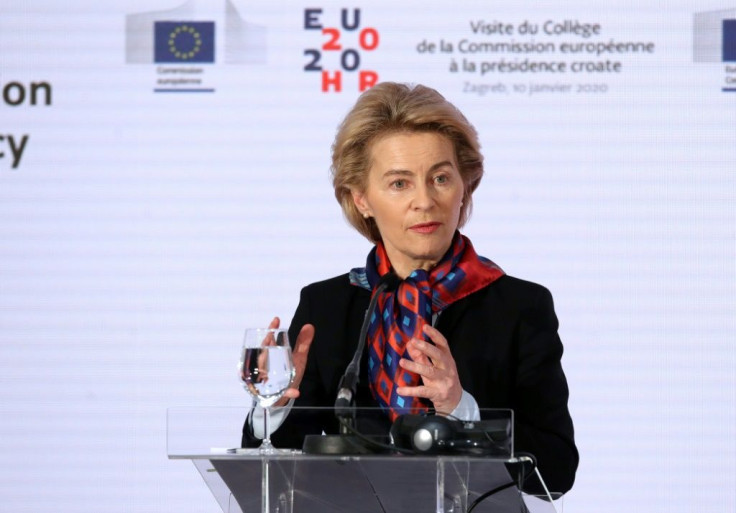Freedom Of Movement Key To Post-Brexit Trade Deal: EU Chief

Britain cannot hope to get frictionless trade with the EU post-Brexit without ensuring freedom of movement of Europeans, European Commission President Ursula von der Leyen said Friday.
"If there is no freedom of movement of people of course there can be no free movement of goods and services and capital," she told a news conference in Croatia, which has just taken up the rotating EU presidency.
The statement was another warning shot to Britain that it may have to rein in the scope of the deal it wants to strike with Brussels over future relations after it leaves the European bloc, which is scheduled to happen at the end of this month.
The two sides have until the end of the year to secure an agreement, during which a transition period will be in place.
British Prime Minister Boris Johnson has been adamant he will not seek an extension of that period. Von der Leyen, in a trip to London on Monday to see Johnson, stressed the limited timeframe meant any deal would necessarily be bare-bones.
Trade will be an important part of the negotiations, which will also cover security, energy, fisheries and transport.
Johnson's office has indicated Britain could accept a partial trade deal.
His government has signalled it wants to end freedom of movement which has allowed EU citizens to take up lives in Britain, and for Britons to easily move to and live in EU countries.
Von der Leyen said "intensive months" of negotiations will take place with Britain this year. "We will be very ambitious, very dedicated, do what we can," she said, but warned: "Time is very short."
"For us it is important that it is the UK that chooses how close or not they want to be to the European Union," she said.
For Britain to have access to the EU's single market "there is of course a pre-condition that they recognise regulatory principles or rules," she said.
"We want a strong and good partnership" with Britain, she said. "They are our friends, they are our neighbours, we share a lot of values, we share a lot of experience."
© Copyright AFP 2024. All rights reserved.




















